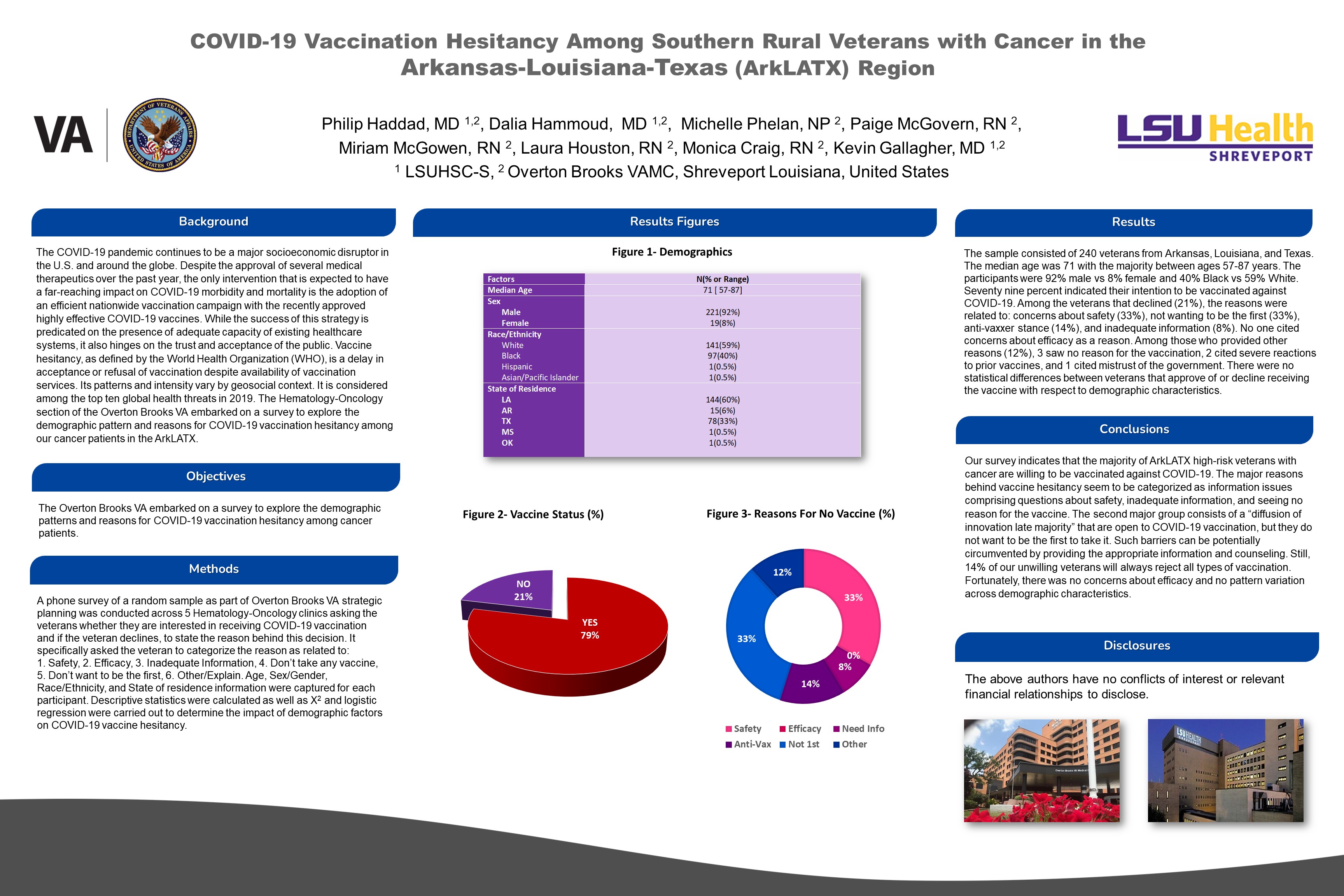PCR021: COVID-19 Vaccination Hesitancy Among Southern Rural Veterans with Cancer in the Arkansas-Louisiana-Texas (ArkLATX) Region
Philip Haddad, MD, CHES, MHA, MPH; Dalia Hammoud, MD; Michelle Phelan, NP; Paige McGovern, BSN, RN, OCN, AMB-BC; Miriam McGowen, BSN, RN, OCN; Laura Houston, RN, OCN; Monica Craig, RN; Kevin Gallagher, MD

Jack Westfall
jwestfall@aafp.org 11/19/2021Great poster and abstract. Thanks